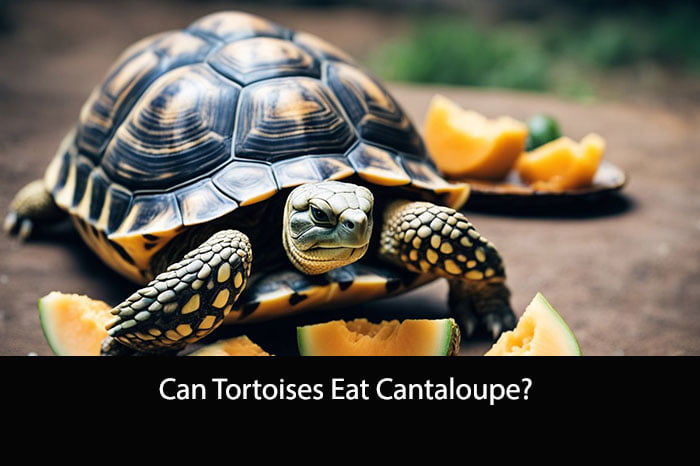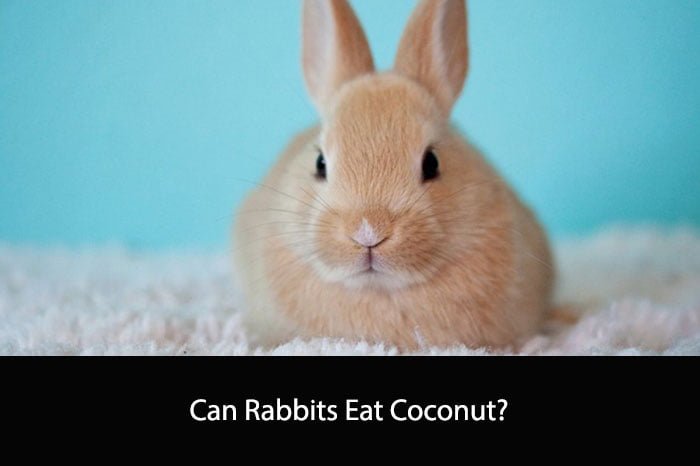Tortoises are herbivorous creatures that enjoy a varied diet of fruits and vegetables. As a pet owner, it’s important to provide your tortoise with a balanced diet that meets their nutritional needs. One fruit that may come to mind is cantaloupe. But can tortoises eat cantaloupe?
The answer is yes, tortoises can eat cantaloupe. In fact, cantaloupe is a healthy treat for tortoises when given in moderation. Cantaloupe is a good source of vitamins A and C, which are essential for a tortoise’s health. However, it’s important to note that cantaloupe should not be the main source of your tortoise’s diet. A balanced diet should consist of a variety of fruits, vegetables, and other foods to provide all the necessary nutrients.
Understanding Tortoises’ Dietary Needs

Tortoises have a unique dietary requirement that is different from most other animals. As herbivores, they primarily feed on plants, and their diet should consist of a variety of vegetables, fruits, and herbs. It is essential to understand the nutritional needs of tortoises to ensure they receive a balanced diet that promotes their health and well-being.
One of the most critical aspects of a tortoise’s diet is the calcium-to-phosphorus ratio. Tortoises require more calcium than phosphorus to maintain healthy bones and shell growth. When the calcium-to-phosphorus ratio is not balanced, it can lead to metabolic bone disease and other health problems.
In addition to calcium, tortoises also require a significant amount of fiber in their diet. Fiber helps promote proper digestion and prevents constipation, which is a common issue in captive tortoises. Providing a variety of vegetables and fruits can help ensure they receive the necessary fiber in their diet.
It is important to note that not all fruits and vegetables are suitable for tortoises. Some fruits, such as citrus fruits, can cause digestive issues and should be avoided. On the other hand, some fruits, such as cantaloupe, can be a healthy addition to a tortoise’s diet if fed in moderation.
In summary, understanding a tortoise’s dietary needs is crucial to their overall health and well-being. A balanced diet that includes a variety of vegetables, fruits, and herbs, with a proper calcium-to-phosphorus ratio and adequate fiber, can help ensure a healthy and happy tortoise.
Cantaloupe Nutritional Profile
Cantaloupe is a delicious fruit that is enjoyed by many people. It is also a great source of nutrients that are essential for our health. In this section, we will discuss the nutritional profile of cantaloupe and its benefits.
One cup of diced cantaloupe (approximately 160 grams) contains:
- Calories: 53
- Carbohydrates: 13 grams
- Fiber: 1.5 grams
- Protein: 1.3 grams
- Fat: 0.3 grams
- Vitamin A: 120% of the Daily Value (DV)
- Vitamin C: 108% of the DV
- Potassium: 9% of the DV
- Magnesium: 4% of the DV
- Calcium: 1% of the DV
- Iron: 1% of the DV
Cantaloupe is a good source of antioxidants, including beta-carotene and vitamin C. These antioxidants help to protect our cells from damage caused by free radicals, which can lead to chronic diseases such as cancer and heart disease.
Cantaloupe is also a good source of potassium, which is important for maintaining healthy blood pressure levels. Additionally, it contains magnesium, which is important for bone health, and vitamin A, which is essential for healthy vision.
Overall, cantaloupe is a nutritious fruit that can be a great addition to a healthy diet. Its sweet and juicy flavor makes it a great snack or addition to smoothies and salads.
Can Tortoises Eat Cantaloupe?
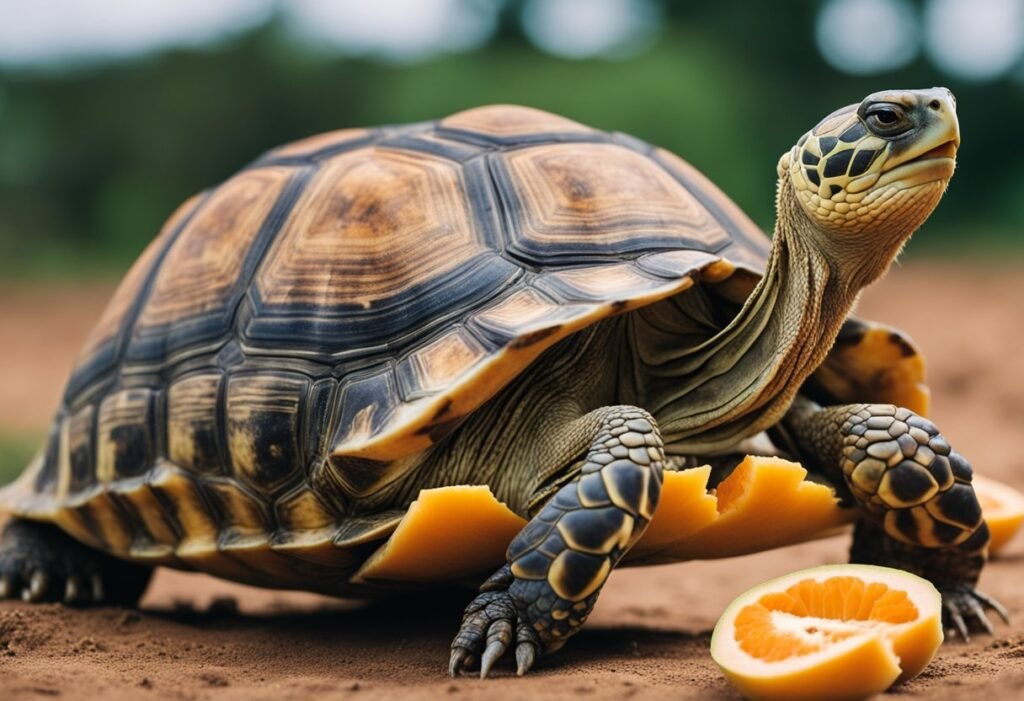
We have often seen tortoises munching on leaves and grass, but have you ever wondered if they can eat fruits? Specifically, can tortoises eat cantaloupe? The answer is yes! Cantaloupe is safe for tortoises to consume in moderation.
Cantaloupe is a great source of vitamins and minerals, including vitamin A, vitamin C, and potassium. These nutrients are essential for maintaining a healthy immune system, promoting good digestion, and keeping the tortoise’s shell strong and healthy.
However, it is important to note that cantaloupe should only be given to tortoises as an occasional treat. Too much fruit in their diet can lead to health problems such as diarrhea and obesity. Additionally, the high sugar content in fruits can cause tooth decay in tortoises.
When feeding cantaloupe to tortoises, it is important to remove the rind and seeds as they can be difficult for them to digest. Cut the cantaloupe into small pieces and offer it to your tortoise as a supplement to their regular diet.
In summary, while tortoises are primarily herbivores, they can enjoy the occasional sweet treat like cantaloupe. Just remember to offer it in moderation and remove the rind and seeds before serving.
Potential Benefits of Cantaloupe for Tortoises
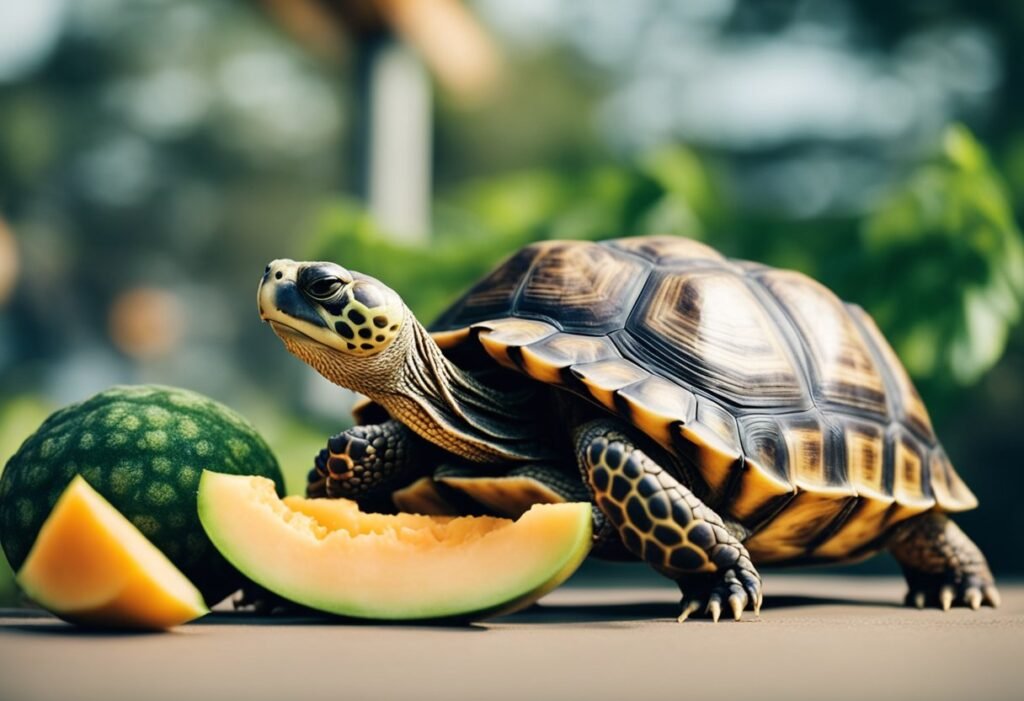
Cantaloupe is a delicious fruit that is rich in nutrients and vitamins. It is a great source of hydration, vitamin C, and fiber for tortoises. In this section, we will explore the potential benefits of cantaloupe for tortoises.
Hydration
Tortoises need to stay hydrated to maintain their health and well-being. Cantaloupe is a great source of hydration for tortoises. It is made up of 90% water, which makes it an excellent way to keep your tortoise hydrated.
Vitamin C
Vitamin C is an essential nutrient that plays a vital role in the immune system of tortoises. Cantaloupe is a great source of vitamin C, which can help boost your tortoise’s immune system.
Fiber
Fiber is an essential nutrient that helps regulate the digestive system of tortoises. Cantaloupe is a great source of fiber, which can help prevent constipation and other digestive problems in tortoises.
In conclusion, cantaloupe can provide many potential benefits for tortoises. It is a great source of hydration, vitamin C, and fiber. It is important to remember that cantaloupe should be fed to tortoises in moderation, as too much can cause digestive problems.
Potential Risks of Cantaloupe for Tortoises

When it comes to feeding tortoises, it’s important to be mindful of what they eat. While cantaloupe may seem like a healthy treat for your tortoise, there are potential risks to consider.
Sugar Content
Cantaloupe is a fruit that is naturally high in sugar. While a small amount of fruit can be a healthy addition to a tortoise’s diet, too much sugar can lead to health issues such as obesity, diabetes, and dental problems. It’s important to limit the amount of cantaloupe your tortoise eats to prevent these issues.
Digestive Issues
Tortoises have a unique digestive system that requires a specific balance of nutrients. Eating too much cantaloupe can upset this balance and lead to digestive issues such as diarrhea and constipation. Additionally, the high water content of cantaloupe can cause dehydration if fed in excess.
Overall, while cantaloupe can be a healthy addition to a tortoise’s diet in moderation, it’s important to be mindful of the potential risks associated with feeding too much. As always, it’s best to consult with a veterinarian or reptile specialist to ensure your tortoise’s diet is balanced and healthy.
How to Feed Cantaloupe to Tortoises
When feeding cantaloupe to tortoises, it is important to keep in mind that this fruit should not make up the majority of their diet. Cantaloupe is high in sugar and should be given as an occasional treat.
Portion Size
When feeding cantaloupe to tortoises, it is important to give them small portions. A good rule of thumb is to give them a piece that is no larger than the size of their head. This will help prevent overfeeding and ensure that they are getting a balanced diet.
Preparation Methods
Before feeding cantaloupe to tortoises, it is important to properly prepare it. This can be done by washing the fruit thoroughly and cutting it into small, bite-sized pieces. It is also recommended to remove the seeds and rind, as they can be difficult for tortoises to digest.
In addition, it is important to make sure that the cantaloupe is fresh and ripe. Overripe or spoiled fruit can cause digestive issues for tortoises.
Overall, cantaloupe can be a tasty and healthy treat for tortoises when given in moderation and prepared properly.
Alternatives to Cantaloupe for Tortoises
When it comes to feeding your tortoise, it’s important to provide a well-balanced diet that includes a variety of fruits and vegetables. While cantaloupe can be a tasty treat for your tortoise, it’s not the only option available. Here are some alternatives to consider:
1. Strawberries
Strawberries are a great alternative to cantaloupe as they are low in sugar and high in vitamin C. They also contain antioxidants that can help boost your tortoise’s immune system. Be sure to remove the stems and leaves before feeding them to your tortoise.
2. Watermelon
Watermelon is another fruit that tortoises enjoy. It’s high in water content, which can help keep your tortoise hydrated. It’s also a good source of vitamins A and C. Be sure to remove the seeds before feeding it to your tortoise.
3. Leafy Greens
Leafy greens such as kale, collard greens, and dandelion greens are a great source of vitamins and minerals for your tortoise. They are low in calories and high in fiber, which can help keep your tortoise’s digestive system healthy. Be sure to rinse the greens thoroughly before feeding them to your tortoise.
4. Carrots
Carrots are a good source of vitamin A, which is important for your tortoise’s eye health. They are also low in calories and high in fiber. Be sure to chop them into small pieces before feeding them to your tortoise.
In summary, while cantaloupe can be a tasty treat for your tortoise, it’s important to provide a well-balanced diet that includes a variety of fruits and vegetables. Strawberries, watermelon, leafy greens, and carrots are all great alternatives to consider.
Frequently Asked Questions
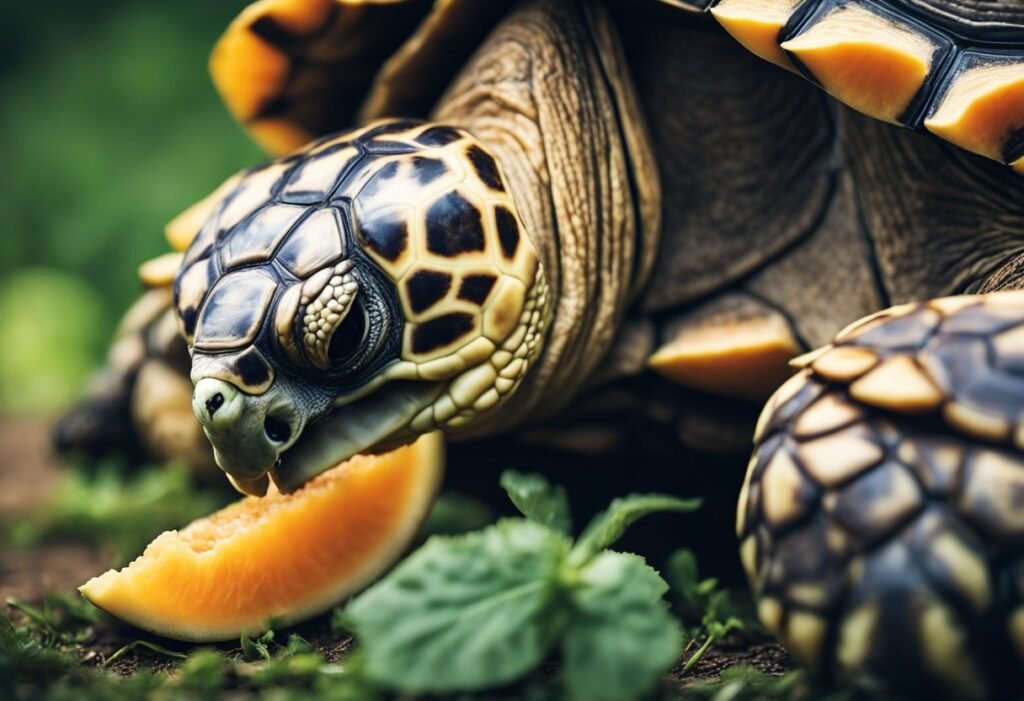
What fruits are safe for tortoises?
Tortoises can eat a variety of fruits, but it is important to remember that they should only be given as occasional treats. Some fruits that are safe for tortoises to eat include apples, bananas, berries, melons, and grapes. It is important to remove any seeds or pits from the fruit before feeding it to your tortoise.
What vegetables can Sulcata tortoises eat?
Sulcata tortoises can eat a variety of vegetables, including dark leafy greens, carrots, squash, and bell peppers. It is important to offer a variety of vegetables to ensure that your tortoise is getting a balanced diet.
Can Russian tortoises eat cantaloupe?
Yes, Russian tortoises can eat cantaloupe as an occasional treat. It is important to remember that fruits should only make up a small part of your tortoise’s diet.
Can hermann tortoises eat watermelon?
Yes, Hermann tortoises can eat watermelon as an occasional treat. Remember to remove any seeds before feeding it to your tortoise.
Can red footed tortoises eat cantaloupe?
Yes, red footed tortoises can eat cantaloupe as an occasional treat. It is important to remember that fruits should only make up a small part of your tortoise’s diet.
What foods are poisonous to tortoises?
Some foods that are poisonous to tortoises include avocado, rhubarb, and chocolate. It is important to research any new foods before feeding them to your tortoise to ensure that they are safe.

